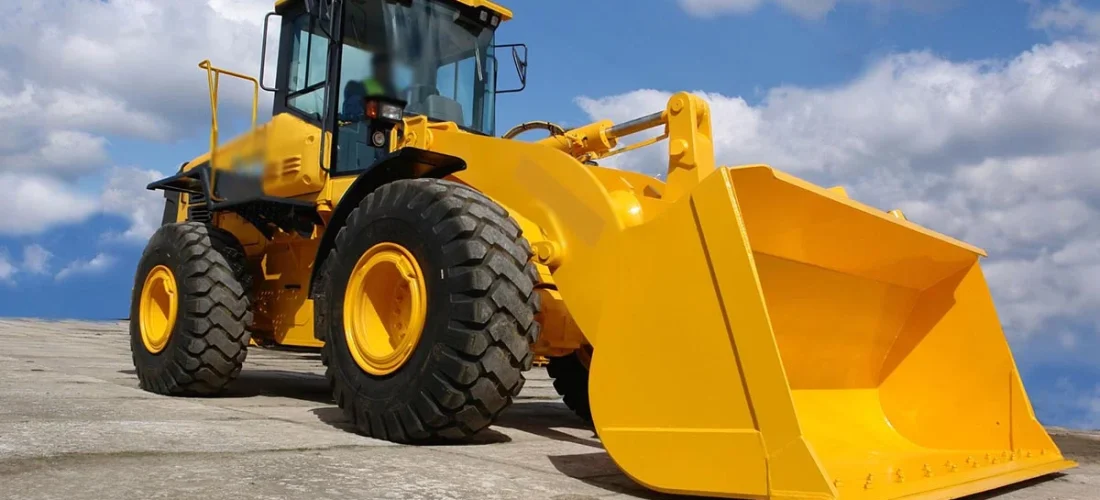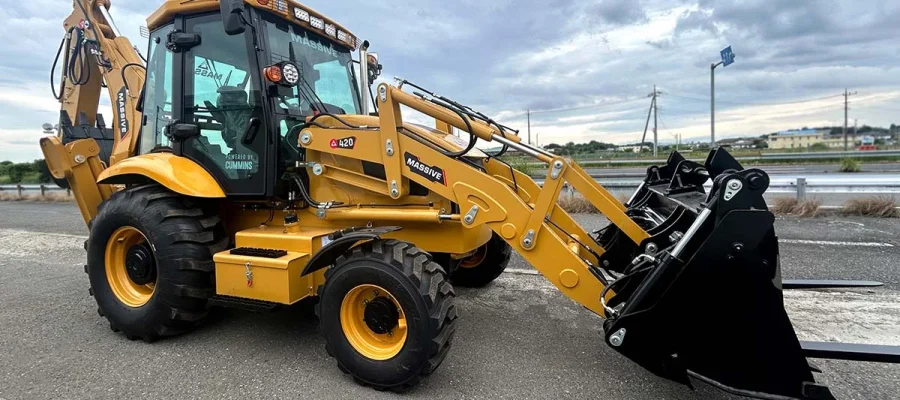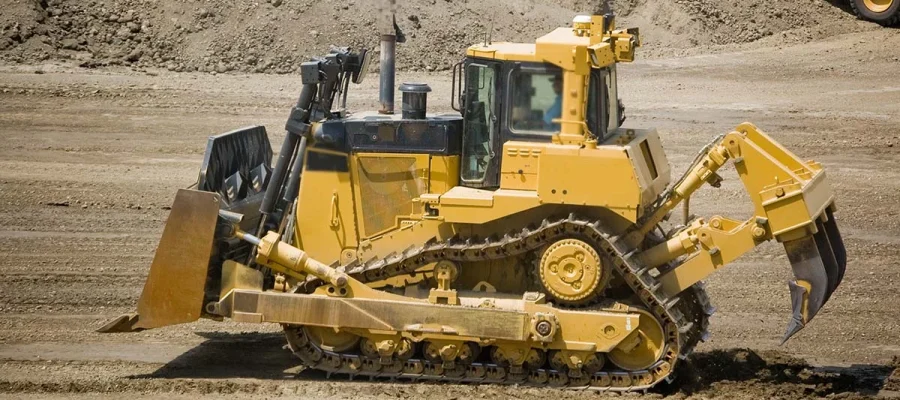
Construction and agricultural businesses across Uganda face a crucial decision when expanding their operations: should they rent or buy heavy machinery like wheel loaders? With the growing demand for infrastructure development and agricultural modernisation, wheel loaders have become essential equipment for countless projects. This comprehensive guide explores the benefits of both renting and purchasing wheel loaders in Uganda, helping you make an informed decision that aligns with your business goals and budget.
Understanding Wheel Loaders in Uganda’s Market
Wheel loaders are versatile pieces of heavy machinery designed for loading materials such as soil, gravel, sand, and agricultural products. In Uganda’s rapidly developing economy, these machines play a vital role in construction projects, mining operations, and large-scale farming ventures.
The Ugandan market offers various options for acquiring wheel loaders, from international brands to locally assembled models. SEM wheel loaders in Uganda have gained particular popularity due to their reliability and cost-effectiveness, making them a preferred choice for many businesses.
The Case for Renting Wheel Loaders
Lower Initial Investment
Renting wheel loaders requires significantly less upfront capital compared to purchasing. This advantage is particularly beneficial for small to medium-sized enterprises (SMEs) that need to preserve cash flow for other business operations. Instead of committing hundreds of thousands of dollars to purchase machinery, businesses can access the same equipment for a fraction of the cost.
Flexibility for Project-Based Work
Many construction and agricultural projects in Uganda are seasonal or temporary. Renting allows businesses to scale their equipment needs based on project demands. When a project concludes, you can return the equipment without worrying about storage, maintenance, or finding the next use for an expensive machine.
Access to Latest Technology
Rental companies typically maintain modern fleets with the latest safety features and fuel-efficient engines. This access to cutting-edge technology can improve productivity and reduce operational costs without the commitment of purchasing new equipment.
Maintenance and Support Included
Most rental agreements include comprehensive maintenance packages and technical support. This arrangement eliminates the need for businesses to invest in specialised maintenance teams or worry about unexpected repair costs. The rental company typically provides quick replacement or repair services when equipment breaks down.
Reduced Administrative Burden
Renting eliminates various administrative tasks associated with equipment ownership, such as insurance management, depreciation calculations, and resale considerations. This paperwork reduction allows business owners to focus on core operations.
The Benefits of Buying Wheel Loaders
Long-term Cost Effectiveness
Purchasing wheel loaders can prove more economical over time for businesses with consistent, long-term equipment needs. Once the initial investment is recovered, operational costs typically become lower than ongoing rental payments.
Complete Control and Availability
Ownership ensures that equipment is always available when needed, without scheduling conflicts or rental availability issues. This reliability is crucial for businesses operating on tight deadlines or managing multiple simultaneous projects.
Customisation Opportunities
Purchased equipment can be modified or customised to meet specific business requirements. Whether adding specialised attachments or implementing custom paint schemes for branding, ownership provides the flexibility to tailor equipment to exact needs.
Asset Building and Depreciation Benefits
Wheel loaders represent tangible assets that can increase the business’s overall value. Additionally, ownership allows businesses to claim depreciation benefits for tax purposes, potentially reducing overall tax liability.
Resale Value
Quality machinery in Uganda typically maintains reasonable resale value, especially well-maintained equipment from reputable manufacturers. This factor can offset some of the initial investment costs when upgrading or downsizing operations.
Financial Considerations for Uganda-Based Businesses
Initial Capital Requirements
Purchasing wheel loaders requires substantial upfront investment, typically ranging from $50,000 to $300,000, depending on size and specifications. This investment can strain cash flow for growing businesses or those managing multiple projects simultaneously.
Operating Costs Comparison
Rental costs in Uganda vary based on equipment type, rental duration, and market conditions. Daily rental rates for wheel loaders typically range from $200 to $800, while monthly rates offer better value for extended projects.
Ownership involves ongoing costs, including:
- Insurance premiums
- Maintenance and repairs
- Fuel and operational expenses
- Storage and security
- Operator training and certification
Financing Options
Many suppliers of machinery in Uganda offer financing solutions for equipment purchases. These options include:
- Equipment loans with competitive interest rates
- Lease-to-own agreements
- Trade-in programmes for existing equipment
- Manufacturer financing through authorised dealers
Making the Right Decision for Your Business
Assess Your Usage Requirements
Calculate how many hours per month you expect to use wheel loaders. Generally, if usage exceeds 100-150 hours monthly for extended periods, purchasing becomes more cost-effective than renting.
Evaluate Your Financial Position
Consider your business’s cash flow, credit availability, and growth projections. Rapidly growing businesses might benefit from renting initially, then purchasing as operations stabilise and expand.
Consider Project Types and Duration
Short-term projects or seasonal work favour rental agreements, while long-term operations with consistent equipment needs benefit from ownership. Mixed approaches are also possible, owning core equipment while renting additional capacity during peak periods.
Factor in Technical Expertise
Ownership requires technical knowledge for maintenance and repairs. Businesses without dedicated maintenance teams might find rental agreements more practical, especially when comprehensive support is included.
SEM Wheel Loaders: A Popular Choice in Uganda
SEM wheel loaders in Uganda have established a strong reputation for reliability and value. These machines offer:
- Competitive pricing compared to European or American alternatives
- Adequate parts availability through local dealers
- Suitable performance for most construction and agricultural applications
- Reasonable resale values in the local market
When considering SEM wheel loaders, both rental and purchase options are widely available through established dealers and equipment rental companies throughout Uganda.
Regional Considerations for Uganda
Infrastructure and Support
Uganda’s improving infrastructure makes equipment transportation and support more accessible. However, businesses operating in remote areas should consider the availability of maintenance services and parts when deciding between renting and buying.
Economic Factors
Uganda’s growing economy presents opportunities for equipment investment, but businesses should consider exchange rate fluctuations, import duties, and local economic conditions when making long-term equipment decisions.
Regulatory Environment
Understanding local regulations regarding equipment operation, operator certification, and safety standards is crucial regardless of whether you rent or buy. Rental companies typically ensure compliance, while owners must manage these requirements independently.
Strategic Recommendations
Start with Rental for New Operations
New businesses or those entering new markets should consider starting with rental agreements. This approach allows operations to begin quickly while gathering data on actual equipment needs and usage patterns.
Graduate to Ownership
As businesses establish consistent equipment needs and cash flow, transitioning to ownership often makes financial sense. Some companies maintain a mixed approach, owning core equipment while renting additional capacity.
Consider Hybrid Approaches
Many successful businesses use combination strategies, owning essential equipment while renting specialised or seasonal machinery. This approach maximises flexibility while building valuable assets.
Planning Your Equipment Strategy
The decision between renting and buying wheel loaders depends on multiple factors specific to your business situation. Careful analysis of usage patterns, financial capabilities, and long-term goals will guide you toward the most appropriate choice.
For businesses seeking wheel loaders for sale in Uganda, research reputable dealers and compare options from multiple suppliers. Whether you choose SEM wheel loaders or other brands, ensure adequate support and parts availability in your operating area.
Remember that this decision isn’t permanent. Many businesses successfully transition from rental to ownership as their operations grow and stabilise. The key is choosing the approach that best supports your current needs while positioning your business for future success.
By thoroughly evaluating your specific circumstances against the benefits outlined in this guide, you can make a confident decision that supports your business objectives while managing financial resources effectively.


